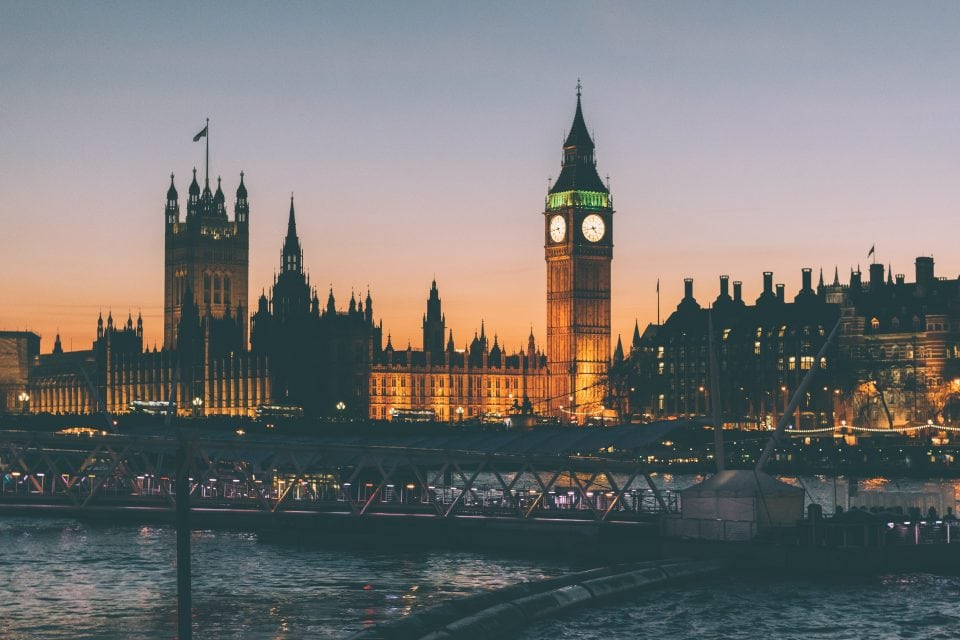Blog Post by Irina von Wiese, former Liberal Democrat MEP
Welcome to the first edition of London Calling, the brand new column of the European Liberal Forum aimed at bridging the Channel. This narrow strait of water seems to have expanded recently – not just since we are no longer able to physically cross it because of the pandemic. In the wake of Brexit, in the midst of a global crisis that has made ‘distancing’ necessary for survival, this column is setting out to narrow down divides between the UK and the rest of the continent of Europe. The quest itself is not new, just the urgency.
One year ago, I was selected the Liberal Democrats’ top candidate for London in Britain’s last European Elections.
In the early hours of 26 May 2019, after a whirlwind five week campaign (replacing the usual 12-18 months), I learned I won more votes than any other candidate in London, from any party. Liberal Democrats not only finished strongest in London, but increased the overall number of MEPs from one to sixteen. When, on a blistering 1 July, we entered the Strasbourg hemicycle in our yellow ‘Stop Brexit’ T-shirts, many of us believed this was a real possibility. For the ensuing 7 months, all of us worked long hours, cast votes – from the election of the Commission President (a majority of eight we could have swung) to the adoption of the European Green Deal -, uncovered the lies of Farage & Co and stood up for the majority of British voters who, by then, wanted to remain in the European Union.
On 29 October, when it became clear that Johnson could not find a majority for his deal and had to request an extension, we celebrated late into the night. But the EU had made it clear – rightly – that any extension would be granted for two reasons only: another referendum or a general election. Failing to reach a majority for the former, parliament was left with the latter, much riskier option. Unlike European elections, general elections in the UK are subject to the ‘first pass the post’ system which favours the two large parties at best of times. This time, we were faced with a right-wing populist government collaborating with the Brexit party, and a far left Labour leader many centrists regarded as toxic. Anyone else was squeezed in the middle. Predictably (although stubbornly unpredicted by some), the December elections resulted in a crushing defeat for Liberal Democrats.
Despite the realisation, some time in November, that chances of stopping Brexit were diminishing by the day, the actual night of 12 December was one of the worst I remember. Failing to fulfil the only promise I had given voters, failing to save my adoptive homeland from what I regarded (and still regard) as the worst self- inflicted catastrophe in its post war history, felt like a personal defeat.
When, on 31 January 2020, no miracles had happened and we left our offices and colleagues for the last time, I could not imagine that a new, far worse catastrophe would befall Europe and the world. In my bereavement I hardly noticed the approaching danger. The speed and scale of the pandemic took me, like many others, by surprise and for a while obscured even the memory of Brexit. The latter, however, is still very real and neglecting it now is more dangerous than ever.
Over the next few months, as we gradually approach the return to business as (almost) usual, this column will focus on the future of British-EU relationships, on the economic, social and political consequences of the pandemic on these relationships, and the path Britain chooses to follow in rebuilding its economy. The fate of Brexit and the eventual Deal – or lack thereof – by the end of the transition period, and the date of that end, will play a pivotal role in this future. Right now, all options are open. But with just 11 MPs in the House of Commons, how will Liberal Democrats be able to influence this critical choice? What will our relationship with other parties – notably Labour – be and what priorities must we set now and in a post-pandemic world? What is the role of liberalism in a world where most basic freedoms have been drastically curtailed?
In this new column by the European Liberal Forum, influential liberal voices from the UK will from now on share their views on crucial topics from the other side of the Channel. Watch this space.
